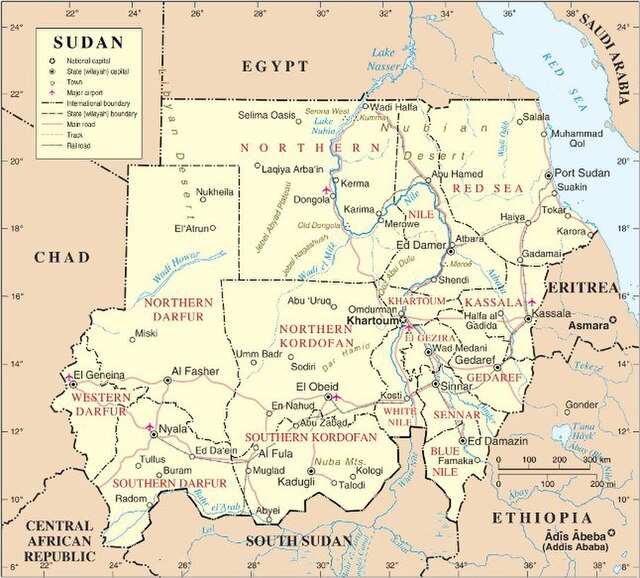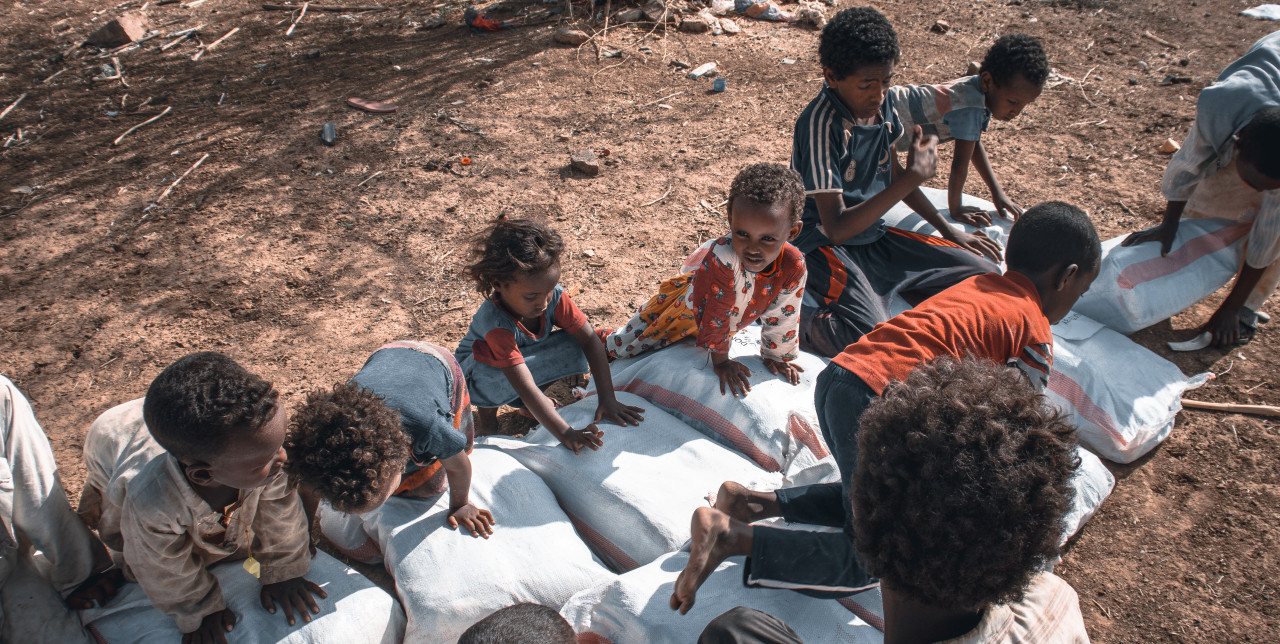05-04-2024 | di COOPI
Sudan: a peaceless year
Far from the spotlight, struggling with a year-long conflict, Sudan continues to face one of the world's worst humanitarian crises. In this alarming scenario, COOPI - Cooperazione Internazionale continues to play a crucial role in providing assistance and support to the many refugees and displaced people who are in urgent need of every essential good.
Broken out on April 15 last year, the civil war between the Sudanese armed forces and the Rapid Support Forces has killed at least 20,000 people and left more than half of the country's population, or 27.5 million people, in urgent need of humanitarian assistance (source: UNHCR). The consequences of the crisis are alarming: the country suffers from the highest number of internally displaced people in the world, with 8.5 million people constantly on the move to escape the attacks. In addition, more than three million Sudanese refugees have fled to countries such as Egypt, Chad, Libya, South Sudan, Eritrea, and Ethiopia.
Yet Sudan also risks another record: that of the world's most severe famine. According to a FAO report, cereal production in the country declined by 46 percent in 2023 compared to the previous year, reaching 80 percent in regions where conflict is most intense. To date, 18 million people are facing emergency levels of hunger (UNHCR).
In this critical context, COOPI - Cooperazione Internazionale took action to respond to the most urgent needs, adapting the projects already underway and its areas of intervention to meet the changing needs and conditions, as well as conceiving new strategies and initiatives to provide vital assistance to the population and mitigate the challenges that arise every day.

North Darfur
The unsafe situation and the limited humanitarian access to some locations in North Darfur are a serious cause of concern. For this reason, COOPI, which has historically had a presence in the area, has taken action to respond quickly to the consequences of possible new clashes by developing emergency plans and providing life-saving services to the population. Through financial support from partners such as USAID's Bureau Humanitarian Assistance (BHA) and the World Food Program (WFP), the organization is working to improve hygiene practices and access to clean water, distributes food and tools to encourage agriculture.
Khartoum
Khartoum, Omdurman and North Khartoum have been the focus of armed clashes since last April, and continue to represent the area with the highest level of violence. With financial support from the UN Coordination for Humanitarian Affairs (OCHA), and through local partners, COOPI is offering assistance to the most vulnerable families, distributing essential goods and providing temporary shelters. But even in this region, one of the main problems remains the water supply: even when wells are not too far away, they become inaccessible due to constant fighting. In response to this issue, COOPI acted quickly by delivering clean water to areas of need.
Gedaref
In the state of Gedaref, where many displaced people have sought refuge from war, COOPI, with financial support from the Italian Agency for Development Cooperation (AICS), is working to strengthen local communities so that they can face the effects of conflict. Through training programs and targeted interventions, COOPI is committed to providing emergency kits, ensuring access to clean water, improving sanitation and waste disposal systems in both refugee camps and host communities.
Eastern Chad
But the Sudanese crisis goes far beyond its borders. More than half a million people from Sudan have taken refuge in eastern Chad since the beginning of the conflict, about 65,000 of whom are returnees from Chad, bringing the refugee camps into a state of total intolerance.
In response to the emergency, since May 2023 COOPI has been working in the Sila region again, working alongside Sudanese refugees through child protection projects and promoting access to water. With AICS's support, COOPI is taking action to promote access to education for children affected by the aftermath of the crisis in Sudan, not only by improving the quality of educational provision, but also by creating a safe learning environment.
As the conflict persists and the humanitarian situation appears to be increasingly alarming, COOPI continues to support displaced people and host communities through emergency operations as well as early resilience, so that they acquire the skills they need to independently respond to the continuing challenges. Over the past year, the five projects activated by COOPI benefit more than 58,000 people with interventions in humanitarian assistance, food security, distribution of safe water and necessities, and disaster risk reduction. COOPI's commitment in Sudan aims to grow, as Ennio Miccoli, COOPI director, said:
A priority for COOPI in the near future is to further increase our capacity to respond to humanitarian emergencies in the country, following the evolution of the conflict. We intend to strengthen our presence in Gedaref, North Darfur in River Nile and Northern State."
In Sudan, COOPI has been present since 2004, supporting the most vulnerable groups affected by conflict and hazards with both development interventions and humanitarian assistance. Since then, 110 projects have been implemented, supporting more than 4 million people, in the fields of food, nutrition and water security, disaster risk reduction, protection, economic development and human rights protection.




 Sudan
Sudan